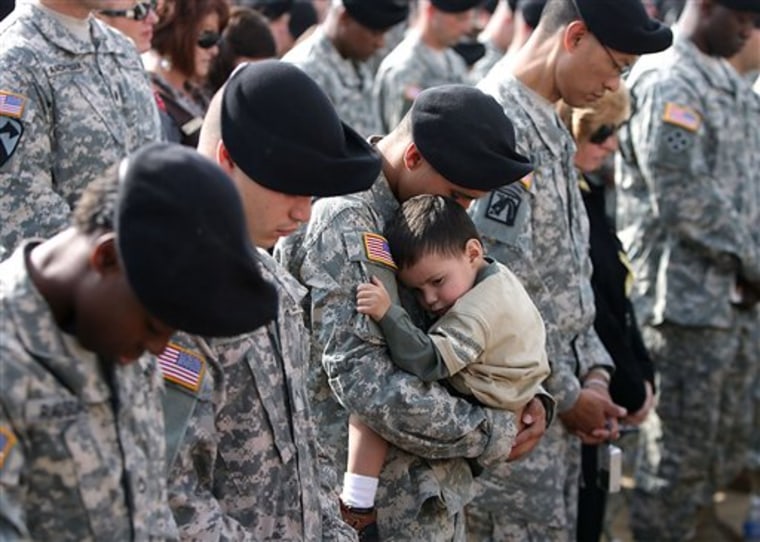A group of doctors overseeing Nidal Malik Hasan's medical training discussed concerns about his overly zealous religious views and strange behavior months before the Army major was accused of opening fire on soldiers and civilians at Fort Hood, Texas, The Associated Press and NPR News reported Wednesday.
A military official familiar with discussions about Hasan said Hasan as a psychiatrist in training was belligerent, defensive and argumentative in his frequent discussions of his Muslim faith. He also had a reputation for being a mediocre student and lazy worker, a matter of concern for doctors at Walter Reed Army Medical Center and the Uniformed Services University of the Health Sciences military medical school, the official said.
The military source spoke to The Associated Press on condition of anonymity because the source was not authorized to speak publicly about the meetings.
The concerns about Hasan’s performance and religious views were shared with other military officials considering his assignment after he finished his medical training, and the consensus was to send him to Fort Hood, the official said. Fort Hood was considered the best assignment for Hasan because other doctors could handle the workload if he continued to perform poorly and his superiors could document any continued behavior problems, the official said.
The group saw no evidence that Hasan was violent or a threat. It was more that he repeatedly referred to his strong religious views in discussions with classmates, his superiors and even in his research work, the official said.
His behavior, while at times perceived as intense and combative, was not unlike the zeal of others with strong religious views, and some doctors and staff were concerned that their unfamiliarity with the Muslim faith would lead them to unfairly single out Hasan’s behavior, the official said.
But NPR News reported that the doctors discussed Hasan during a series of meetings between spring 2008 and spring 2009, and at one point talked about whether he was "psychotic" and mentally fit to be an Army psychiatrist.
One official involved in the conversations reportedly told colleagues that he worried that if Hasan deployed to Iraq or Afghanistan, he might leak secret military information to Islamic extremists, according to NPR. Another official reportedly wondered aloud to colleagues whether Hasan might be capable of committing fratricide, like the Muslim U.S. Army Sgt. Hasan Akbar, who killed 2 fellow soldiers in 2003 by setting off grenades at a base in Kuwait.
Poor evaluations
Several officials told NPR that supervisors had repeatedly given Hasan poor evaluations and warned him that he was doing substandard work during his training at Walter Reed.
The sources told NPR that both fellow students and faculty were deeply troubled by Hasan's behavior, which they variously described as disconnected, aloof, paranoid, belligerent and "schizoid."
The disclosures came as questions swirled about whether opportunities were missed to head off the massacre in which 13 died and 29 were wounded at Fort Hood last Thursday.
The Senate already has launched its own inquiry into the Hasan case. Sens. Joe Lieberman, a Connecticut independent, and Susan Collins, R-Maine, plan to hold a hearing on the shootings next week.
